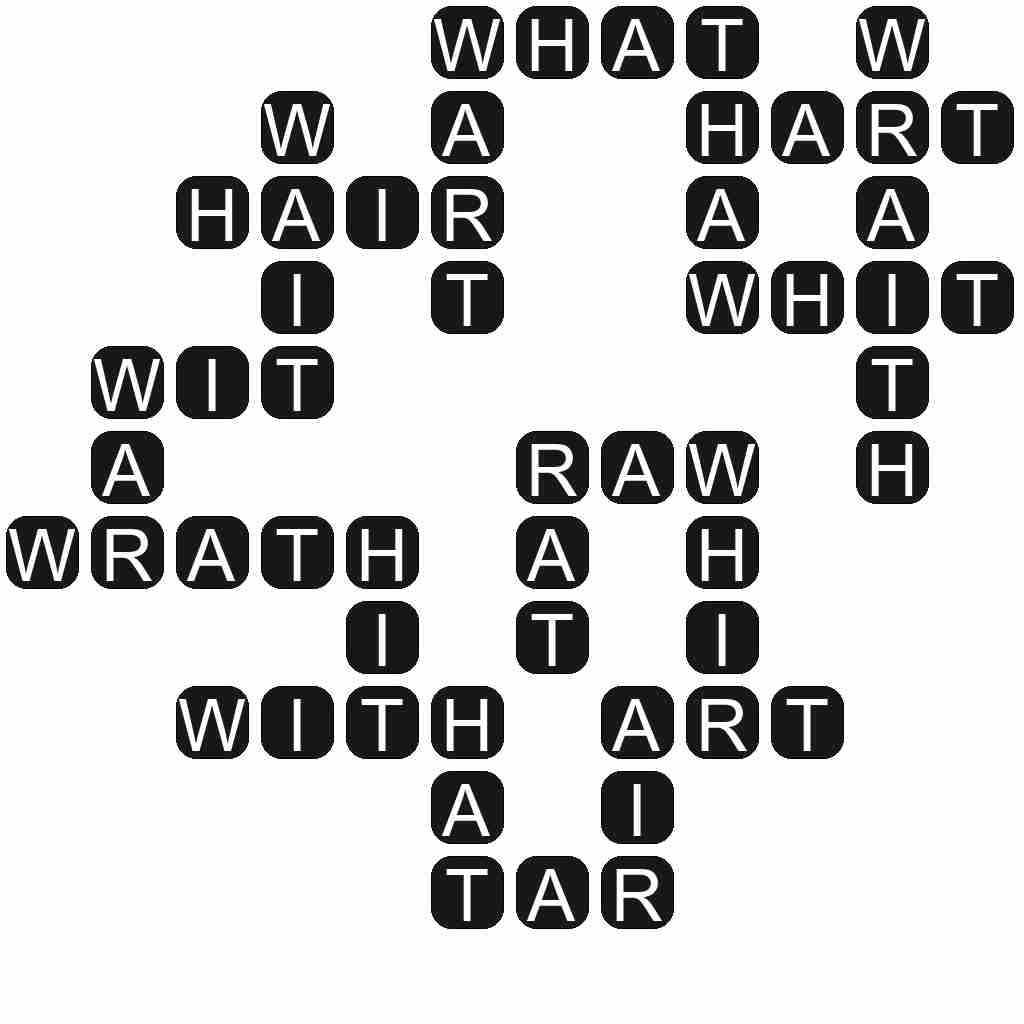AIR - The atmospheric substance above the surface of the earth which animals breathe, formerly considered to be a single substance, one of the four basic elements of ancient philosophy and one of the five basic elements of Eastern traditions.
ART - Human effort to imitate, supplement, alter, or counteract the work of nature.
HAT - A covering for the head, often in the approximate form of a cone or a cylinder closed at its top end, and sometimes having a brim and other decoration.
HIT - To administer a blow to.
RAT - A medium-sized rodent belonging to the genus Rattus.
RAW - Of weather: unpleasantly damp or cold.
TAR - A black, oily, sticky, viscous substance, consisting mainly of hydrocarbons derived from organic materials such as wood, peat, or coal.
WAR - Organized, large-scale, armed conflict between countries or between national, ethnic, or other sizeable groups, usually involving the engagement of military forces.
WIT - Sanity.
HAIR - A pigmented filament of keratin which grows from a follicle on the skin of humans and other mammals.
WAIT - To delay movement or action until the arrival or occurrence of; to await. (Now generally superseded by "wait for".).
WHAT - Which thing, event, circumstance, etc.: used interrogatively in asking for the specification of an identity, quantity, quality, etc.
WITH - Against.
WART - A type of deformed growth occurring on the skin caused by the human papillomavirus (HPV).
THAW - To melt, dissolve, or become fluid (specifically by gradual warming); to soften; said of that which is frozen.
WHIT - The smallest part or particle imaginable; an iota.
HART - A male deer, especially the male of the red deer after its fifth year.
WHIR - Alternative spelling of whirr.
WRATH - Great anger.
WRAITH - A ghost or specter, especially seen just after a person's death.








